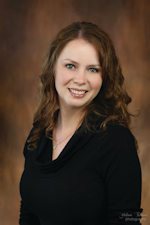Seizing the possibilities of independent dental hygiene practice
DEPENDING ON THE STATE, a hygienist may not be required to work for a dentist in the traditional office setting. With the acceptance of direct access care, and a few extra requirements, the hygienist may be allowed to work independently with indirect supervision, as well potentially own a dental practice.
The ADHA defines direct access as the “ability of a dental hygienist to initiate treatment based on their assessment of a patient’s needs without the specific authorization of a dentist, treat the patient without the presence of a dentist, and maintain a provider-patient relationship.” (1) Some of us are happy going to work and leaving it all behind after the day ends, while others have the desire to be self-employed or work in public health or nursing care facilities, among other possibilities.
The ability to own a practice or to provide care as an independently practicing hygienist is evolving and becoming more of a possibility in many states. Currently, 40 states have approved direct access care, up from 28 states in 2008.
Lack of access to oral care in many ways has helped drive the force an expanded scope of practice for dental hygienists. I grew up in a small community where the wait for a dental appointment was nearly two months or more, for example. The need for access to oral care in rural areas is a valid concern. With extended access to fill the need for care, more preventive measures can be achieved. Having the ability to a fulfill a need offers the hygienist emotional satisfaction, and even potential financial benefit.
In Colorado, for example, a hygienist may own and practice without supervision by or reporting to a dentist. In other states, a hygienist may practice independently with the requirement that the patient must be seen by a dentist every 12 to 18 months for an exam, and documentation must be provided and kept for records.
The opportunity to provide a community service on your own schedule and terms is appealing for many hygienists. The ability to choose your path is a beauty of our field, as not every path appeals to us all equally. Personally, as my career evolves and changes, I find I have the desire to reach and treat different populations of patients than I did 20 years ago. The ability to offer extended access makes those desires and dreams a little easier.
Forgotten populations
The elderly population often forgotten when it comes to dental care; however, it is often the generation that needs care the most. I know of hygienists that operate their own business and practice independently to treat the elderly population by providing mobile services to care facilities and private homes as needed. One in particular has built the passion of providing care to the elderly into a business to serve those most in need and neglected, all within the scope of practice for the state. In turn, she is able to adjust her schedule as she needs to provide the flexibility for both her and her patients, all while earning a living.
Spending time in a care facility with my grandmother made me realize the astounding need for oral care among the elderly. I practice in a traditional dental practice; however, after relocating from one state to another recently, I am looking at other opportunities to provide much-needed services to the elderly. With the approval of procedure codes and progression of teledentistry, the patient population has a multitude of methods to gain diagnosis and treatment.
Hygienists may also make themselves a bit of a commodit through the desire to “specialize” in a certain field. With so many issues that affect not only the oral cavity but the whole body system, there is an opportunity to develop and pursue a niche. With expertise in areas such as sleep apnea, myofunctional therapy, and special needs, there is the need to have experts in all fields related to patient care.
Know your requirements
As with any position, you must be aware of the scope of practice and each state’s requirements and dental practice acts to ensure lawful practices are followed. The ADHA offers a listing of all states that have approved direct access care and an overview of each state at adha.org/direct-access. Direct access care means many different things in each state. Discussions with the dental board may be necessary to assure dental practice acts are being followed—what may be allowed in one state does not mean it is allowed in another. Another way to help in self regulation is to network within the local and state organizations, such as the ADHA components. Networking serves multiple purposes in the development and regulation of your career, such as creating a collaborative voice to improve health-care and regulations.
As my career has evolved and changed, I found it was best to be involved with others, some who are more experienced and some who are less experienced. There is something you can learn from almost everyone. I was lucky to connect with a mentor who has nurtured me and encouraged me to think outside of the box, often challenging me to address or pursue things outside of my comfort zone. Mostly, she has been a wealth of knowledge and experience to offer guidance when I had questions.
Surround yourself with others and don’t be afraid to inquire about how to broaden your knowledge. It may make your path to independent practice a little easier. First and foremost, investigate and be sure your dream is allowable. Then it is time to develop a plan. Developing that plan should include finding a squad of people who have knowledge and experience in developing a business model. Their expertise can help in every way.
No matter the path you chose or how your career evolves there are options for the future.
References
1. ADHA Policy Manual. ADHA website. https://www.adha.org/resources-docs/7614_Policy_Manual.pdf. Published 2016.








